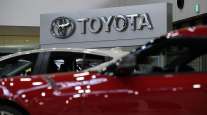Bloomberg News
Earnings Calls Study Shows Companies More Worried Than in 2008

[Ensure you have all the info you need in these unprecedented times. Subscribe now.]
The once-in-a-century pandemic has unleashed financing fears all over Corporate America that far exceed the 2008 crisis, as executives prep for fresh economic and market pain.
A new study by Federal Reserve researchers used a machine-reading program to sift through more than 600 earnings calls last month in order to map out the virus-induced fallout.
Some 42% of American non-financial public companies are discussing slashing investments, 27% are talking about equity payouts and 17% are focused on drawing down on credit lines, conclude economists Andrew Y. Chen and Jie Yang. At the peak of the last recession the figures were 25%, 11% and 7%, respectively.

The duo collected the number of times senior company officials used words laced with financing worries for clues on what’s next in this economic crash.
“The dramatic increase in the share of firms taking these actions indicates that financing concerns amid the COVID-19 outbreak are even more severe than they were in 2008,” they wrote.
Based on trends in 2008, sentiment won’t normalize for a year, according to the Fed researchers.
The results underscore the immense pressure facing corporate America on the heels of an economic slump expected to be the sharpest in a century. Compared to 2008 there are few signs of stress in the banking system, but corporate bankruptcies are already on pace to top levels in the last recession. Businesses are grappling with a collapse in demand, supply disruptions and persistent uncertainty over the timeline for the re-opening of large economies.
All that belies the stock market rebound. The S&P 500 is up more than 25% from its March trough on hopes of an economic recovery aided by an easing outbreak and unprecedented stimulus. The cost of credit default swaps has also dropped alongside the premiums paid by the riskiest borrowers.
Dividend futures on the S&P 500 due 2021 are down 29% this year, compared with an 11% drop for the U.S. benchmark itself.
Want more news? Listen to today's daily briefing:




